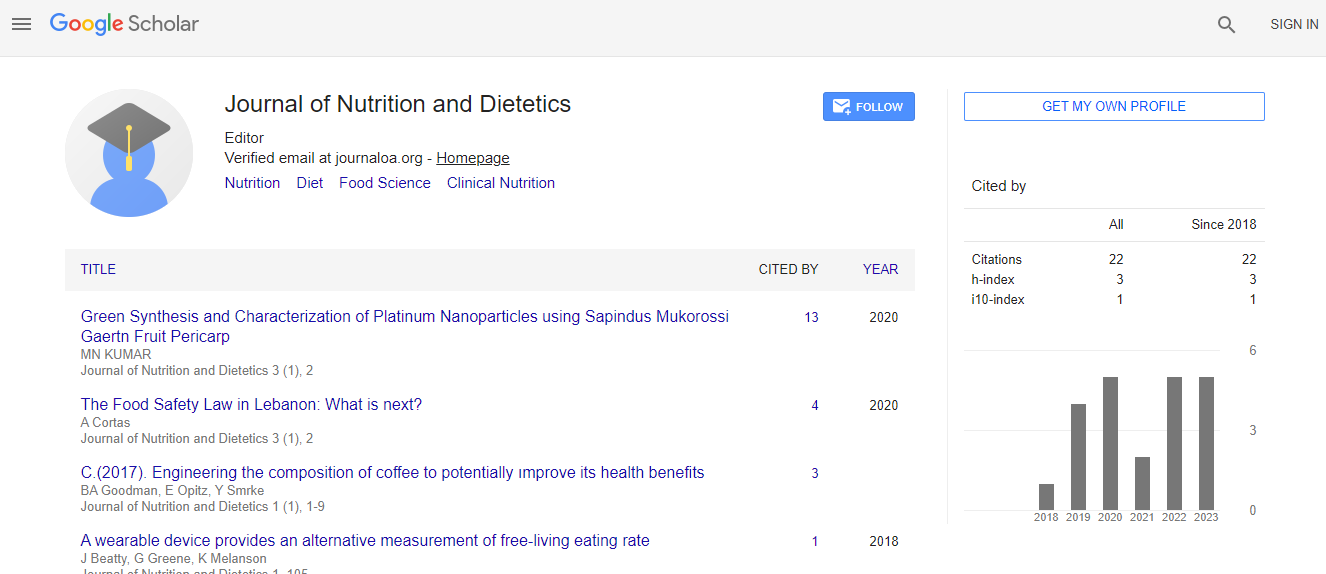Nutrition education improves knowledge scores on dietary management, physical activity and glycaemic index among Type 2 diabetes mellitus patients in a Randomized control trial
Abstract
Type 2 diabetes mellitus (T2DM) is on the increase hence the need for preventive strategies to curb this upward trajectory. Diabetes education is one of the preventive strategies that can be adapted and employed with the aim of increasing knowledge and awareness of overall management of T2DM. Therefore, the aim of this study was to determine the effect nutrition education on knowledge level in Type 2 diabetes mellitus patients. The study was a randomized control trial with two intervention groups; nutrition education peer to peer support (NEP) group and nutrition education (NE) group, and a control (C) group. The NEP group received nutrition education programme with additional peer to peer support component while NE group received only nutrition education. The nutrition education classes run for eight weeks 2 hrs. each. Standard care was given to the control group. A pre-test questionnaire testing knowledge on diabetes management (5 questions), diet management (10 questions), glycemic index (5 questions) and physical activity (5 questions) was administered to all the groups before the intervention and the same questionnaire was administered after the intervention, at month one post intervention, month three post intervention and month six post intervention. Mean percentage knowledge score was determined and compared between groups using Analysis of co-variance (ANCOVA). The results showed that there were no statistically significant differences in the knowledge score of the participants at baseline in all the groups. However knowledge scores improved significantly (p<0.01) in the NEP;+42.45% after intervention, +40.00% at month one post intervention, +34.53% at month three post intervention and +36.68% at month six post intervention. The knowledge score also improved in
NE; +38.34% after intervention, +35.37% at month one post intervention, +31.12% at month three post intervention and +33.10% at month six post intervention. The greatest improvement was seen one month after the intervention in the two intervention groups. When we compared the knowledge score differences between the groups, there was a statistically significant (p<0.05) difference between NEP and NE at month one post intervention (4.33%,) and at month six post intervention (3.59%,) and between NEP and C (37.99%, 35.13%, 29.04% and 32.57%; p<0.01)
and NE and C ( 34.16%, 30.80%, 25.91% and 28.98%; p<0.01) after intervention, at month one post intervention, month three post intervention and month six post intervention, respectively. In conclusion, our findings showed that the application of nutrition education programme in Type 2 diabetes mellitus patient improved the knowledge score in diabetes management, diet management, physical activity and knowledge on glycemic index. Furthermore, the inclusion of peer to peer support improved the outcome; hence we recommend that nutrition education programme
with peer to peer support can be adapted as a preventive strategy for type diabetes mellitus patients.

 Spanish
Spanish  Chinese
Chinese  Russian
Russian  German
German  French
French  Japanese
Japanese  Portuguese
Portuguese  Hindi
Hindi 